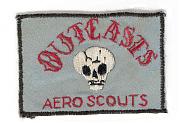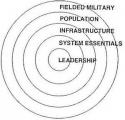"We." Thus I missed the direct reference. My apologies.
I'd also state that the "varying degrees of success" were specifically related to the knowledge of the commander on the ground and his willingness to do what was right instead of what his boss or his bosses boss thought was the politically astute thing to do.
As you say it was indeed higher headquarters comprehension and vision that was needed and lacking in the pre-1968 days.




 Reply With Quote
Reply With Quote










Bookmarks